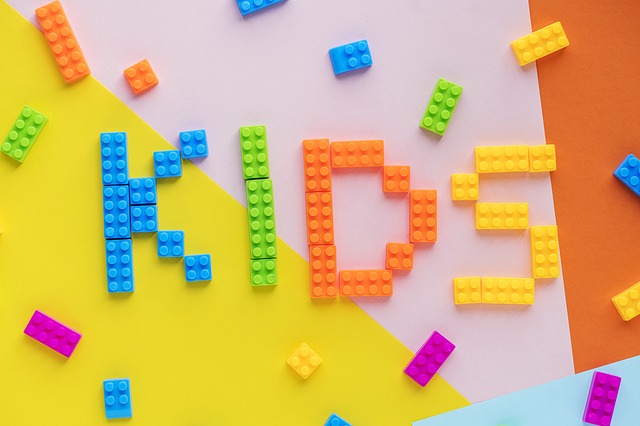
7 Values We Need to Teach Children From an Early Age
Becoming a parent is quite the challenge, and the truth is, that nobody feels prepared for it the first time around. Having a child is one of the greatest responsibilities in our lives – and not only because their physical survival depends entirely on us. We are also the ones who shape their minds, who show them what’s right and what’s wrong. It’s our responsibility to help them become great people, sufficient adults, and loving and nurturing human beings. Therefore, we try to teach them certain values, and every parent has some important choices to make when it comes to the future of their child. Here are some very nice and simple values you can’t go wrong with.
Respect. Respect is probably the first thing your child needs to learn to be able to successfully adapt in our society in the future. Of course, respect should never be confused with fear or intimidation. Only gentle persistence and stirring in the right direction should be more than enough. First children learn to respect their family members, and after they start attending school, they learn to respect power figures from their surroundings. You will have to cover the whole topic that yelling doesn’t get you anywhere from a very early age. There are also 3 words you need to use as a rule at home – Please, Sorry and Thank you.

Honesty. You know what they say, honesty is the best policy. And they are right. Honesty is something hard to achieve nowadays, with all the small lies we use to cover our true thoughts and intensions. Things like “Let’s not tell mommy we broke her vase” or “Let’s not tell daddy we ate all that candy today” really stick to a young child’s mind, and they will eventually start thinking that it’s fine to lie to people. Which it is not. So, just try to stay honest and don’t lie to people in front of your kids, unless you want to be lied to someday. And if you catch your kids in a lie, don’t overreact. Just give them a chance to come clean, help them out even. Don’t be too harsh with them, because this can sometimes make kids retract and act even worse as a defense mechanism.
Patience. Patience is a virtue not many people possess, unfortunately. And most kids are impatient by nature, so this is a difficult one. You can teach your children some patience with a few simple tricks. First, don’t give in to their demands right away. If they want something bad enough, they will be willing to wait for it. Don’t be afraid of their outbursts, they are inevitable, but if you manage to withstand, you will be better for it. And second, make them work for it. Nothing in life comes easily, for some things we must wait and be patient. Your kids may not like it at first, but they will get used to it.

Kindness. Our ability to take other people’s feelings into consideration is one of the things that make us human. It’s pivotal to teach our children to be kind with old people, their younger siblings, their pets and everyone else close to them. The good part is that you can encourage this important value from the earliest age, by using personal example and through games. Encourage your kids to play the hero instead of the villain, encourage them to always take the high road when it comes to arguments and negative comments, and teach them that small gestures of kindness can sometimes be more powerful than anything.
Persistence. Life is very hard on quitters. And sometimes when kids are facing difficulties, and they realise they won’t win, they get tempted to quit and find something easier. But life is not about the easy choices, and it’s our job to teach them that important lesson. We need to make them remember that winning is not the most important issue, sometimes trying and giving our best is more than enough. Don’t look disappointed when your child fails at something, the important part is that they gave their best, and they need to know that their effort is much appreciated.

Responsibility. Responsibilities are something we all have our entire lives, so as soon as our kids do get used to it, the better. The best way to teach your kids to be responsible is to show them by personal example, of course. Other than that, you can try to give them some age-appropriate chores as they grow up. Kindergartners can be thought to dress themselves up in the morning, make their beds and help arranging the table before meals (nothing heavy, just the easiest tasks). Kids in elementary schools can vacuum, do the laundry, load the dishwasher and be responsible for cleaning their bedrooms. Older kids can help raise their siblings, help with garden work, and help maintain the house. Introducing kids to responsibilities gradually helps them grow up into very self-sufficient adults.
Creativity. Being creative is not something that comes naturally to most people, and with the conveniences of our modern world, it’s a fact that this value gets put aside way too often. Which is a great mistake, because creative people are what makes this world so beautiful and worth living in. You can easily teach your children creativity by allowing them to follow their interests and providing them with the means to do it. You can also teach them to cook, encourage them to read more books, let them disagree and listen to their ideas. Making your kids feel noticed and nurturing their imagination are the right steps to take when you want to teach them creativity.
- Five Changes to Apply to Your House Before Selling It - June 28, 2022
- How to clean and organise your summer house - January 27, 2022
- How Often Should Pest Control Visit Your Home? - January 13, 2022





